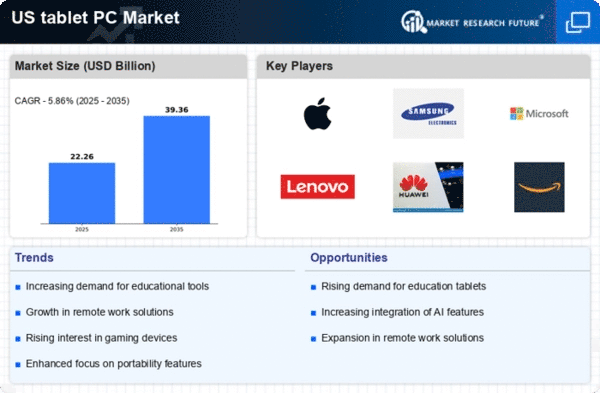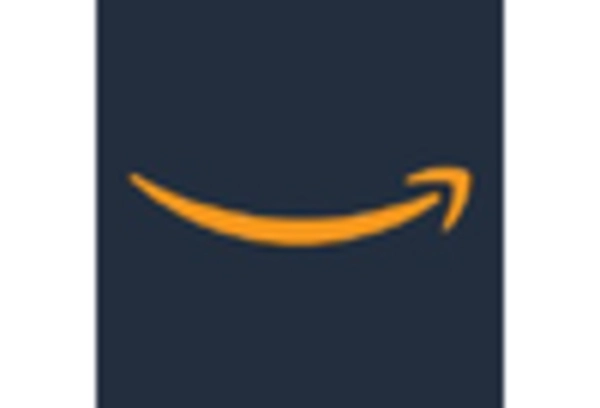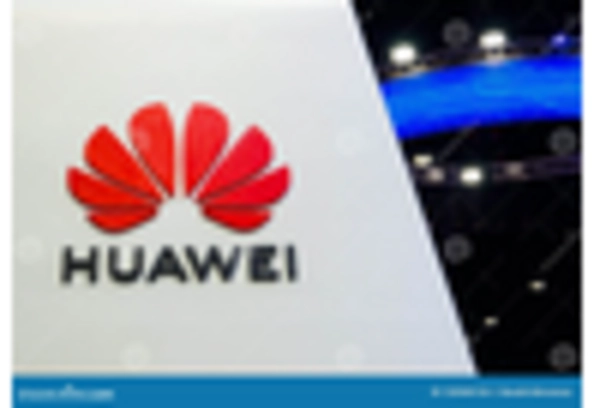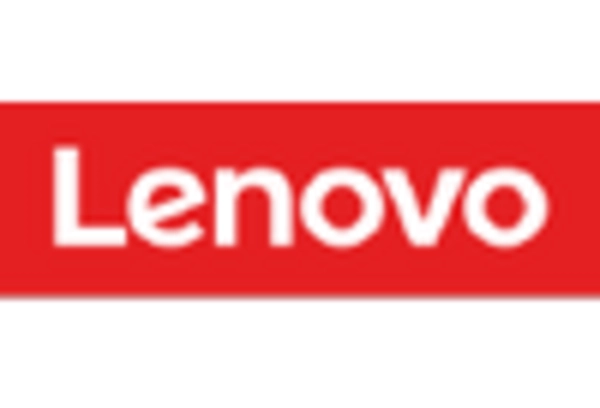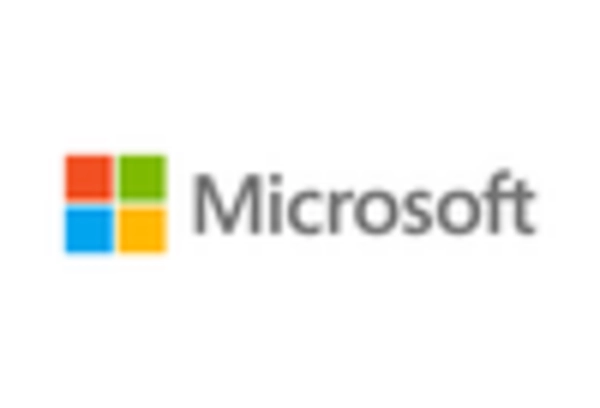Growing Demand for Portability
The tablet pc market is experiencing a notable surge in demand for portable devices. As consumers increasingly prioritize mobility, the need for lightweight and compact technology becomes paramount. This trend is particularly evident among professionals and students who require devices that can easily transition from home to office or classroom. In 2025, the tablet pc market is projected to reach a valuation of approximately $50 billion, reflecting a compound annual growth rate (CAGR) of around 8%. This growth is driven by the convenience of tablets, which offer a balance between functionality and portability, making them ideal for on-the-go use. The tablet pc market is thus adapting to meet these evolving consumer preferences, emphasizing the importance of design and usability in product development.
Expansion of Content Consumption
The tablet pc market is benefiting from the expansion of content consumption, driven by the increasing popularity of streaming services and digital media. Consumers are utilizing tablets for watching videos, reading e-books, and engaging with interactive content, which enhances the overall user experience. In 2025, it is anticipated that over 50% of tablet users will primarily use their devices for content consumption, reflecting a shift in usage patterns. This trend encourages the tablet pc market to focus on improving display quality, battery life, and audio capabilities to meet consumer expectations. As a result, manufacturers are likely to invest in research and development to create devices that cater specifically to the growing demand for high-quality content consumption.
Integration of Advanced Technologies
The tablet pc market is witnessing a significant integration of advanced technologies, which enhances user experience and functionality. Features such as artificial intelligence (AI), augmented reality (AR), and improved processing power are becoming standard in new models. This technological evolution not only attracts tech-savvy consumers but also appeals to businesses seeking efficient tools for productivity. In 2025, it is estimated that around 30% of tablet users will utilize devices equipped with AI capabilities, indicating a shift towards smarter technology. The tablet pc market is thus compelled to innovate continuously, ensuring that products remain competitive and relevant in a rapidly changing technological landscape.
Rising Adoption in Business Environments
The tablet pc market is experiencing a rising adoption rate within business environments, as organizations recognize the benefits of mobile computing. Tablets facilitate remote work, enhance collaboration, and streamline operations, making them valuable assets for companies. In 2025, it is projected that approximately 40% of enterprises will incorporate tablets into their daily operations, reflecting a growing trend towards digital transformation. This shift is particularly pronounced in sectors such as retail, healthcare, and logistics, where mobility and real-time data access are crucial. The tablet pc market is thus responding to this demand by offering tailored solutions that cater to the specific needs of businesses, further driving market growth.
Increased Focus on Health and Wellness Applications
The tablet pc market is seeing an increased focus on health and wellness applications, as consumers become more health-conscious. Tablets are being utilized for fitness tracking, telehealth consultations, and wellness management, making them essential tools for personal health. In 2025, it is estimated that the health and wellness app market will contribute significantly to tablet sales, with projections indicating a growth rate of around 15% annually. This trend highlights the tablet pc market's adaptability to consumer needs, as manufacturers develop devices that support health-related functionalities. The integration of health apps into tablets not only enhances their appeal but also positions them as vital components in the wellness ecosystem.


